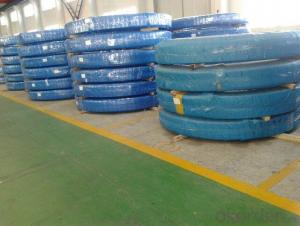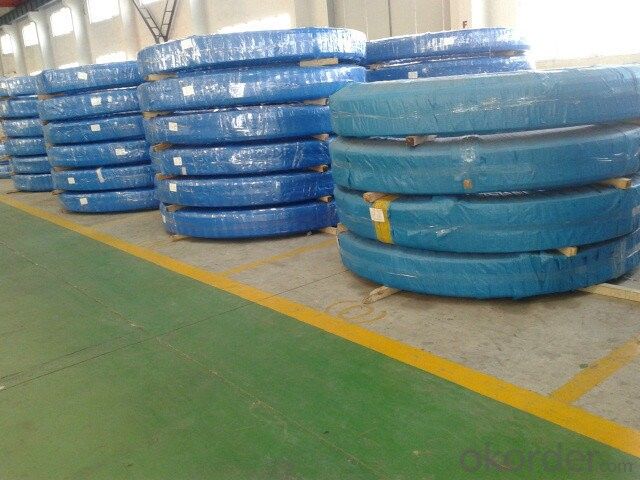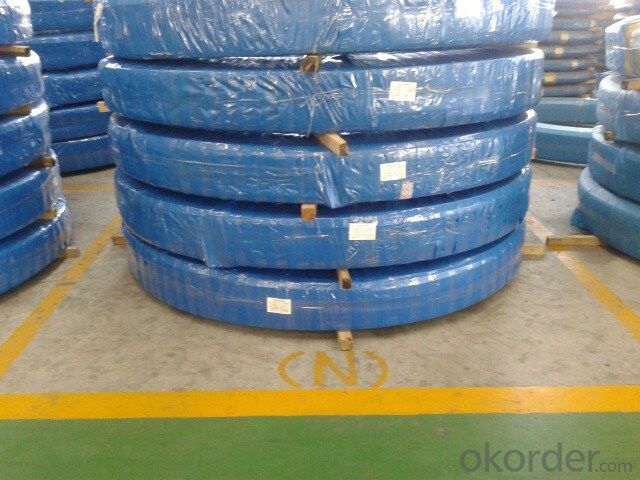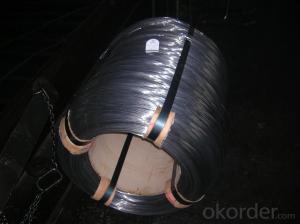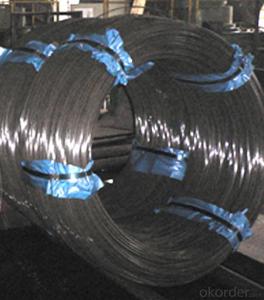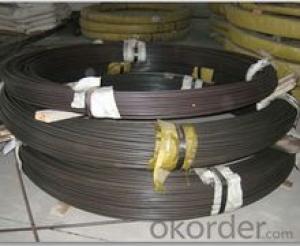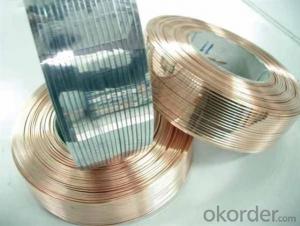OIL TEMPERED SPRING STEEL WIRE
- Loading Port:
- China Main Port
- Payment Terms:
- TT OR LC
- Min Order Qty:
- -
- Supply Capability:
- -
OKorder Service Pledge
OKorder Financial Service
You Might Also Like
Steel grade should be 55CrSi,50CrVA,55Cr3,60Si2Mn,SAE9254.Size range from 1.6mm to 17.0mm,coil weight can be reach 2000kgs.mainly produced into AUTO springs.now export to INDIA,IRAN,SAUDI ARABIA and so on.
We can satisfying market demands constantly and empoldering new product;can offering wires according to German standards(DIN17223/1,DIN17223/2),American standards(ASTM A227/A227M,ASTM A228/228M,ASTM 231/A231M,ASTM A401/401M),Japanese standards(JIS G3521,JIS G3522,JIS G3560,JIS G3561).and European standards(DIN EN10270-1,DIN10270-2)and so on.
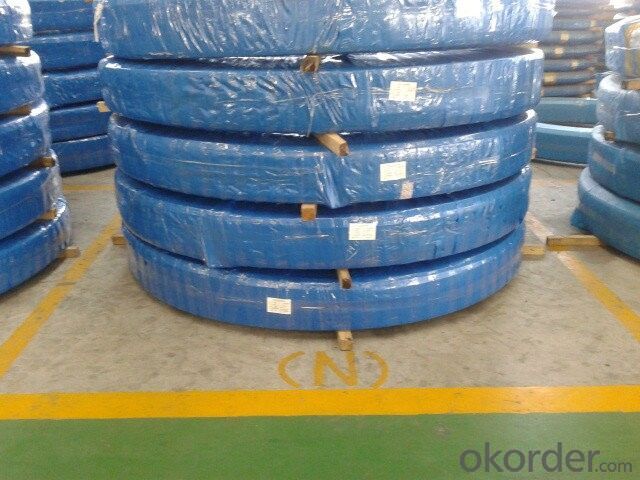
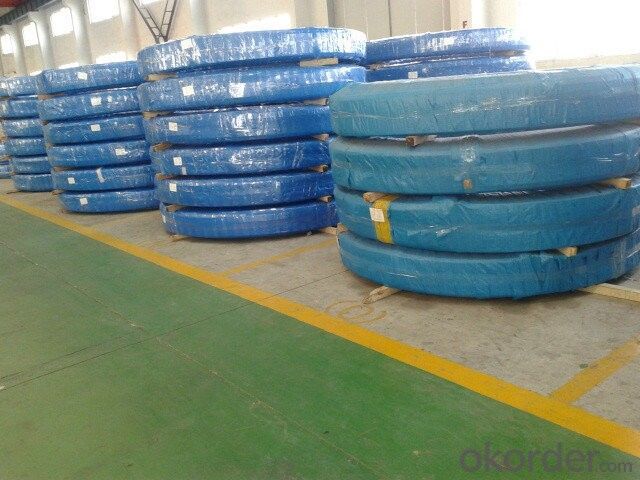
- Q: How does bearing steel resist fatigue?
- Bearing steel resists fatigue due to its high strength and hardness, which enables it to withstand repeated loading cycles without experiencing significant deformation or failure. Additionally, bearing steel undergoes specific heat treatment processes, such as quenching and tempering, which enhance its fatigue resistance by improving its microstructure and reducing internal stresses. This combination of material properties and heat treatment techniques allows bearing steel to maintain its structural integrity and performance over extended periods of use, even under demanding operating conditions.
- Q: What are the main characteristics of high-speed steel?
- High-speed steel is known for its exceptional hardness, toughness, and heat resistance. It can maintain its hardness even at high temperatures, making it ideal for cutting tools and machining applications. Additionally, high-speed steel has excellent wear resistance, allowing it to withstand heavy usage and prolong tool life. It also has good machinability and can be easily shaped into various cutting tools.
- Q: What are the properties of nickel-based alloys?
- Nickel-based alloys possess several desirable properties, including high strength, excellent corrosion resistance, good thermal stability, and outstanding mechanical properties at elevated temperatures. These alloys also exhibit good electrical conductivity, magnetic properties, and resistance to oxidation. Additionally, nickel-based alloys can be easily fabricated, making them suitable for various applications in industries such as aerospace, automotive, chemical processing, and power generation.
- Q: How does special steel contribute to the manufacturing of medical implants?
- Special steel plays a vital role in the manufacturing of medical implants by offering superior strength, corrosion resistance, and biocompatibility. These properties are crucial for ensuring the longevity and functionality of implants, allowing them to withstand the harsh conditions within the human body. Additionally, special steel can be shaped and machined into complex forms, enabling the production of intricate and customized implants to meet the specific needs of patients. Overall, special steel is essential for producing high-quality and reliable medical implants that enhance patient outcomes and improve their quality of life.
- Q: What are the different forming techniques used for special steel?
- Some of the different forming techniques used for special steel include hot forging, cold forging, extrusion, rolling, and casting.
- Q: How is special steel made?
- Special steel is made through a complex and precise manufacturing process that involves several steps. The first step is the selection of high-quality raw materials, typically iron ore and scrap metal, which are then melted in a furnace at extremely high temperatures. This process removes impurities and creates molten steel. Once the molten steel is obtained, it is further refined to achieve the desired composition and properties. This is done by adding various alloying elements such as chromium, nickel, manganese, and vanadium. These elements help enhance the steel's strength, hardness, corrosion resistance, and other specific characteristics required for the intended application. Next, the molten steel is cast into different shapes or forms, such as bars, slabs, or billets, through a process called casting. During casting, the steel is poured into molds and allowed to cool and solidify. This solidified steel is then further processed through various techniques like rolling, forging, or extrusion to achieve the desired shape and dimensions. After shaping, the steel undergoes heat treatment, which involves controlled heating and cooling processes. Heat treatment helps refine the microstructure of the steel, improving its mechanical properties. This can include processes like quenching, tempering, annealing, or normalizing, depending on the specific requirements. Finally, the steel is subjected to rigorous testing and quality control measures to ensure that it meets the required specifications and standards. These tests can include mechanical, chemical, and physical analyses, as well as non-destructive testing techniques, to verify the integrity and performance of the special steel. Overall, the production of special steel is a highly technical and specialized process that involves careful selection of raw materials, precise alloying, casting, shaping, heat treatment, and rigorous quality control. The end result is a steel with exceptional properties that can be tailored to meet the specific needs of various industries, such as automotive, aerospace, construction, or manufacturing.
- Q: Can special steel be used in the chemical industry?
- Yes, special steel can be used in the chemical industry. Special steel, such as stainless steel or corrosion-resistant alloys, has high resistance to corrosion, heat, and chemical reactions, making it suitable for various applications in the chemical industry. It is commonly used in equipment like reactors, tanks, pipes, and valves to handle corrosive chemicals and maintain product integrity and safety.
- Q: How does special steel contribute to reducing product failures in high-stress applications?
- Special steel contributes to reducing product failures in high-stress applications by providing enhanced mechanical properties and improved resistance to wear, corrosion, and fatigue. Its superior strength, toughness, and durability enable it to withstand extreme conditions and loads, ensuring the longevity and reliability of the products. Additionally, special steel allows for precise engineering and manufacturing, resulting in components that can withstand high stress without deformation or failure.
- Q: What are the properties of nitriding steel?
- Nitriding steel is a process in which the surface of the steel is hardened and enhanced by introducing nitrogen into its structure. The properties of nitriding steel include increased surface hardness, improved wear resistance, enhanced fatigue strength, and greater corrosion resistance. Additionally, nitriding steel exhibits a low coefficient of friction, excellent dimensional stability, and increased resistance to heat and oxidation.
- Q: How does stainless steel contribute to architectural design?
- Stainless steel contributes to architectural design by offering a versatile and aesthetically pleasing material that can be used in various applications. Its durability, corrosion resistance, and sleek appearance make it a popular choice for modern buildings and structures. Stainless steel can be used for cladding, roofing, handrails, facades, and other architectural elements, adding a contemporary and timeless touch to the design. Additionally, its ability to be formed into different shapes and sizes allows architects to create innovative and intricate designs, enhancing the overall visual appeal of a structure.
Send your message to us
OIL TEMPERED SPRING STEEL WIRE
- Loading Port:
- China Main Port
- Payment Terms:
- TT OR LC
- Min Order Qty:
- -
- Supply Capability:
- -
OKorder Service Pledge
OKorder Financial Service
Similar products
Hot products
Hot Searches
Related keywords
